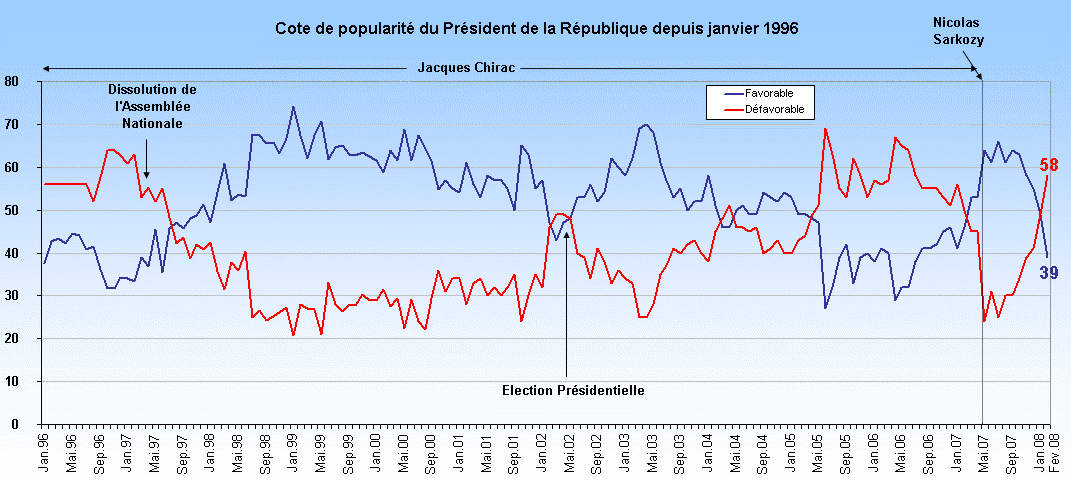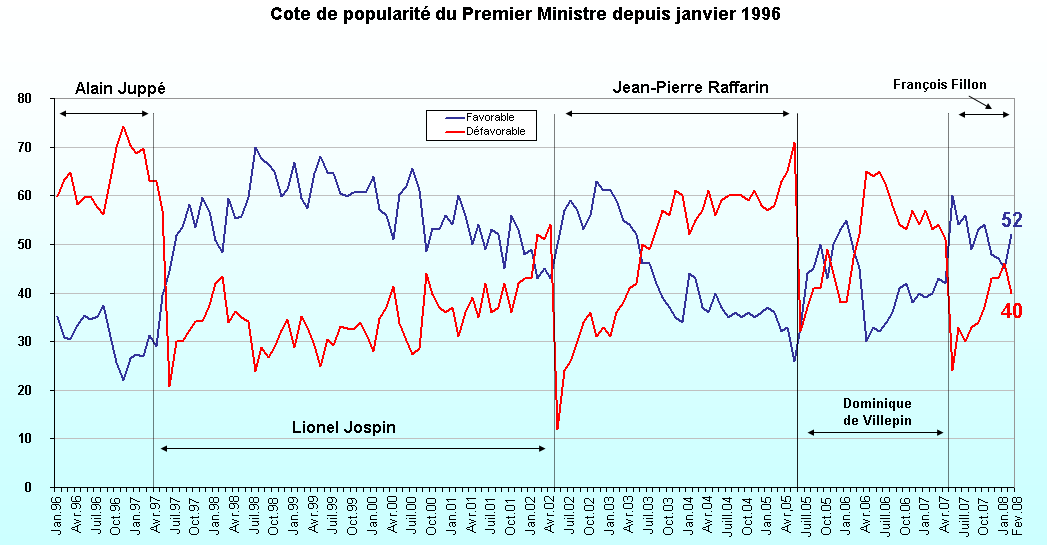
Presidential popularity: President Sarkozy, elected in May 2007, has quickly lost a lot of popularity.
From the beginning, he was quite polarizing, as he is very blunt and he has directly challenged some major features of French political life:
He spoke clearly about all these issues and more, and was elected. So people agree with the ideas and he started in office with substantial popularity, as is always the case. He is a very strong speaker, and truly reflects a strong break with the past. Further, he has appointed a cabinet that reflects some strong and long-standing party leaders, but an unprecendented number of political outsiders, often from outside his own party. This is especially true in the areas of housing, justice, and foreign affairs. So there is serious commitment to attempting to deal with longstanding political issues in a new way.
Election against Segolene Royal on 6 May 2007 led to a 53-47 victory, so this was pretty substantial.
In the legislative elections of 10 and 17 June 2007, his side won and has a 345 / 227 majority in the National Assembly. However, this was less of an overwhelming win than had previously been expected, and the Socialist Party actually gained seats. See the wiki page for election results.
As you can see in the graphs below, beginning in the fall of 2007, just a few months after being elected, his popularity has started to plummet. Partly, this can be explained by the traditional honeymoon newly elected presidents enjoy. Partly, in September each year, when summer vacations end, social protests start up again, and 2007 was no exception; labor unions and others protested his policies. More generally, however, people have reacted very negatively to the bling-bling aspects of the presidency; he was divorced in October 2007 and by Christmas holidays was at the pyramides in Egypt with his new bride-to-be. All the time, people were protesting about the declining purchasing power of their income. The current Prime Minister, Francois Fillon, is actually more popular than the President, perhaps because his reputation is much more focused on being a technocrat and being attuned to the state of the economy and concerns of the population, whereas the President, at least for the time being, is associated in the public mind with an extravagent personal lifestyle. How much that personal element will affect the President's ability to govern, given his strong majority in Parliament, remains to be seen. Municipal elections will be held in March 2008, and these are traditionally seen as a barometer of popular support for the ruling party.
Some reminders about popularity, from recent polls:
The President:

Various Prime Ministers:
